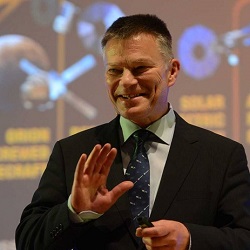
Professor a.D. Dr.-Ing. Klaus Brieß
Former Head of the Chair of Space Technology, TU Berlin
Since joining the Technische Universität Berlin as professor of space technology, he has dealt extensively with nano and pico satellite technologies and their various uses for the communication and remote sensing of the Earth, Moon and planets. Professor Brieß has special expertise in the area of satellite engineering with a focus on the miniaturisation of space technologies for use in micro, nano and pico satellites as well as space sensors.
Professor Brieß previously worked in aerospace on different instrumentations and missions for the remote sensing of the earth, moon, planets, comets and asteroids. Since 1994, his research and development activities has focussed on small satellite missions. As an employee of the German Aerospace Centre from 1996 to 2003, Professor Brieß led the first satellite mission (BIRD) to success.
Under his guidance from 2003 to 2020, 15 satellites were developed, integrated, tested and successfully commissioned in orbit together with students at the TU Berlin.
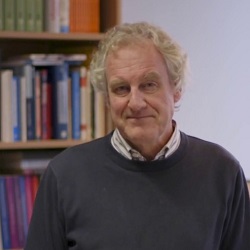
Professor a.D. Dr. phil. Dietrich Manzey
Former Head of Chair of Work, Engineering & Organizational Psychology, TU Berlin
Dietrich Manzey has got his PhD in Psychology from University Kiel and his habilitation in Work- and Organisational Psychology from University Marburg. From 1987 to 2001 he worked at the German Aerospace Center in Hamburg, where he was involved with aptitude testing of pilots and air traffic controllers, as well as research on human performance consequences of spaceflight. The latter included several experimental studies during spaceflight and ground-based simulations. From 2001 to 2003 he worked as Professor of Work and Engineering Psychology at the University of Applied Sciences in Lueneburg, Germany, before joining TU Berlin in 2003. His research interests involve issues of human-automation interaction in the domains of aviation and medicine, issues of workload and performance in complex tasks, as well as issues of system safety in high-hazard industries. Since 1999 he is also involved as consultant with the European Space Agency and provides support to the European Astronaut Center.
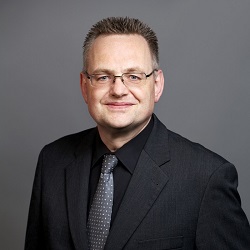
Professor Dr.-Ing. Dieter Peitsch
Head of Chair of Aero Engines, TU Berlin
Dieter Peitsch received his Doctor degree from the RWTH Aachen in the field of turbomachinery and propulsion. Before he took over the Chair of Aeroengines at TU Berlin, he worked for Rolls-Royce in Derby (UK) and Dahlewitz (Germany) in various departments. Additionally he acts as vice dean for research of the Faculty of Mechanical Engineering and Transport Systems of TU Berlin.

Professor Dr.-Ing. Enrico Stoll
Head of the Chair of Space Technology, TU Berlin
Enrico Stoll holds a diploma degree (2004) in aerospace engineering from the Technical University of Dresden after studies at MAI, Moscow and UNSW, Sydney. He finished his PhD at the Institute of Astronautics at TU Munich in 2008. Thereafter, he was a postdoctoral research fellow of MIT’s Space Systems Laboratory. Subsequently, he joined RapidEye/ Blackbridge as a systems engineer for their remote sensing satellite constellation. During that time he was also a guest lecturer at FU Berlin and received a bachelor’s degree in mathematics from the University of Hagen. He was the head of the Institute of Space Systems at TU Braunschweig from 2014 to 2021.
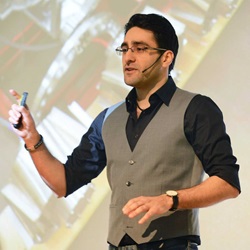
Dipl.-Ing. Cem Avsar
Co-Founder and Managing Director, beSpace Gmbh
Cem Avsar graduated in Aerospace Engineering and joined the Chair of Space Technology at TU Berlin in 2010. As a researcher, he worked on satellites and planetary rovers. Currently, he is managing director of the Berlin-based space education company beSpace GmbH and scientific coordinator of the Master of Space Engineering programme. He is very active in integrating hands-on activities into the curriculum and has initiated several student satellite and rover projects.
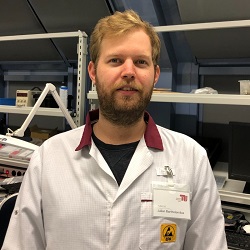
M.Sc. Julian Bartholomäus
Research Assistant at Chair of Space Technology, TU Berlin
Julian graduated in Transport Systems B.Sc. and Aeronautics and Astronautics M.Sc. from TU Berlin. During his studies he started working on the payload suite of the TUBIN mission and joined the team as a research assistant upon graduation. The focus of his research includes the development and refinement of the fire detection algorithm and the calibration of the infrared payloads.
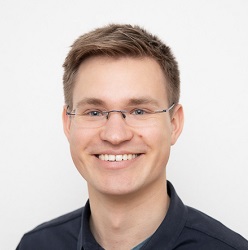
M.Sc. Johannes Becker
Research Assistant at Chair of Space Technology, TU Berlin
Johannes graduated 2019 in Aerospace Engineering from TU Braunschweig. During his studies and research time in Braunschweig he was a long-time active and leading member of the student club ERIG e.V., where he gathered hands on experience in the fields of propulsion systems and sounding rockets.
After graduation, he worked as a research assistant at the Institute of Space Systems (IRAS, TU Braunschweig) until he moved in 2021 with Prof. Enrico Stoll to the TU Berlin. The fields of research are satellite and exploration propulsion systems and ISRU-technologies for the exploration of the moon.
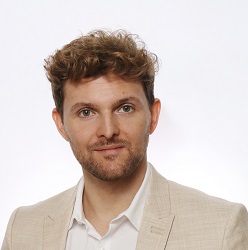
Dr. Riccardo Benvenuto
Constellation Programme Director, constellr GmbH
Riccardo Benvenuto has a Ph.D. in space systems engineering from Politecnico di Milano and an MBA in Innovation Management from Frankfurt School of Finance and Management. He has 10 years experience in the space sector, first as a systems engineer and later as a programme manager, in both commercial and institutional missions. Currently at constellr, he manages the satellite programme and has responsibility for the development and deployment of the company’s space and ground infrastructure.
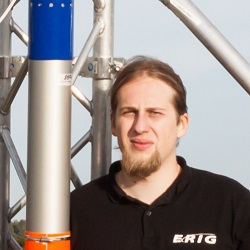
M.Sc. Benedict Grefen
Research Assistant at Chair of Space Technology, TU Berlin
Benedict graduated in Aerospace Engineering from TU Braunschweig (TUBS). After his graduation he worked as a research assistant at the Institute of Space Systems (IRAS, TUBS) until he joined the Chair of Space Technology TU Berlin in 2021. During his studies and research time in Braunschweig he was a long-time active member of the student club ERIG e.V., where hands on experience in the fields of propulsion systems and sounding rockets were gathered. The fields of research are satellite and exploration propulsion systems and ISRU-technologies for the exploration of the moon.
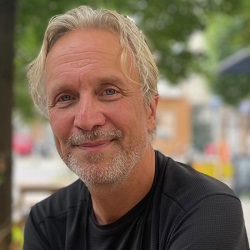
Dipl.-Kfm. Stephan Haensch
Founder and Member of the Executive Board of Haensch Business School Ltd.
Stephan Haensch, a Member of the Executive Board since 2003, brings over 20 years of experience in delivering customized and generic business simulations for both private and public organizations. A business economist by training, Stephan has extensive experience as a management consultant on international projects in countries such as South Africa, Russia, the USA, and Panama.
Before joining Haensch Business School Berlin, Stephan held various positions in the recycling industry and worked as a consultant in South Africa. He also spent several years as academic staff at the European University Viadrina.
Stephan is a certified Team Management System Coach, Quality Auditor, and Business Game Trainer. Additionally, he is a trained Transactional Analysis consultant, coaching executives using this methodology. He is also an accredited Insights Discovery and Team Management System consultant, specializing in coaching teams to become high-performance units.
Stephan is skilled in traditional Waterfall project management as well as agile methodologies such as Scrum, Kanban, and Design Thinking.
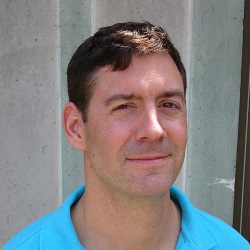
Dr.-Ing. Robert Heinkelmann
VLBI group leader at GFZ Potsdam
Robert has joined the GFZ Potsdam as the Head of the VLBI Group in 2012. Before that date he was working in VLBI at the Deutsches Geodätisches Forschungsinstitut, TU München, and for Vienna University of Technology, where he also got his PhD. During his career he worked on geodetic and astrometric reference frames, Earth orientation and atmospheric propagation effects.
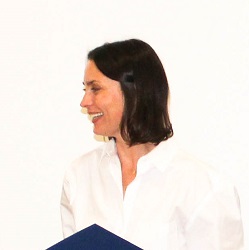
Dipl.-Kffr. Olga Homakova
Co-Founder and Managing Director, beSpace GmbH
Before studying Corporate Finance and Marketing at Technische Universität Berlin, Olga graduated from the Far Eastern State University of Humanities in Russia with a Diploma in German and English Linguistics. In 2014, together with Cem Avsar, she developed the Master of Space Engineering programme. She is currently the Managing Director of beSpace GmbH and combines coordinating the Master’s programme with teaching German for Engineers courses to the MSE students.
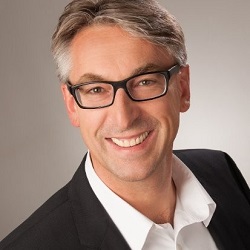
Dipl.-Wi.-Ing. Klaus G. Kammermeier
Founder of Cyoneer GmbH, Innovation Consultancy and InnovationLabs
Klaus G. Kammermeier has over 18 years of experience in managing and leading groundbreaking technology innovation projects. He led many multi-functional high performance teams in Europe, America and Asia, participated in over 100 innovation initiatives and managed business innovation portfolios.
Klaus is a sought after coach and mentor for startups, speaks publicly about digital transformation and innovation eco-systems and participates as expert and juror in Germany’s largest startup competitions.
Klaus completed business and global leadership classes at Columbia University Business School, New York, and Tuck School of Business at Dartmouth College, Hanover, NH, USA.
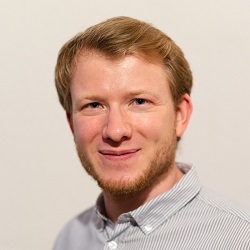
Dipl.-Ing. Daniel Just
Team Leader for Thermal System Development at ArianeGroup GmbH
After his graduation in Aerospace Engineering at TU Berlin, Daniel Just joined ArianeGroup GmbH. As a thermal engineer he worked on the Ariane 5 upper stages, the ExoMars Rover and the development of the new Ariane 6 upper stage. Currently, he is responsible for thermal analyses and thermal design of the ASTRIS Kick Stage and leads the team of thermal system development at ArianeGroup in Bremen.
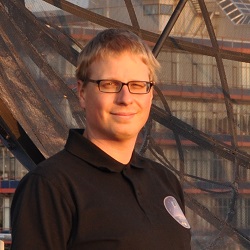
M.Sc. Sebastian Lange
Research Assistant at Chair of Space Technology, TU Berlin
Sebastian graduated in Computer Engineering from TU Berlin, spending one year at Grenoble INP Ensimag (France) studying Télécommunications (Master Communication Systems Engineering). During his studies he worked at the Fraunhofer Institute for Open Communication Systems in the fields of wireless mesh and cognitive radio networks. At TU Berlin, he worked at the Chair of High Frequency Technology and Photonics as student assistant and moved into aerospace engineering after graduating. Since then he sets his focus in the fields of satellite communications engineering and frequency coordination. He consulted the German Aerospace Center (DLR) in committee work towards the ITU world radio conference 2019. Current and former projects: SIERRA (Team Lead since 2017), SALSAT (Embedded Linux & RF Systems Engineer 2019-2021), QUICK³ (Telecommunications Engineer 2021-2023), S-Net Ops (Project Lead since 2023) and BEECON (Project Lead since 2023).
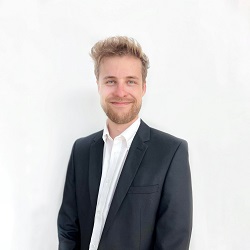
M.Sc. Robin Tom Nitschke
Research Assistant at Chair of Space Technology, TU Berlin
Robin holds a Master’s in Space Engineering from TU Berlin and is pursuing a PhD in the Exploration and Propulsion Group, focusing on In-Situ Resource Utilization (ISRU). With over two years of experience in regolith processing and high-temperature applications using lunar soil simulants, he contributes to technologies for sustainable lunar exploration. Previously, he worked four years in the metallography lab at Fraunhofer IGP, gaining hands-on experience in materials science. His background spans Human and Robotic Exploration, emphasizing long-term human presence beyond Earth. Robin also engages in science outreach and student activities. As former robotics lead of BEARS e.V., he led the ERC Rover Team to 7th place in the 2024 European Rover Challenge. He is currently active in the Space Generation Advisory Council (SGAC), contributing to global space policy discussions.
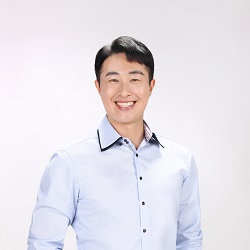
M.Sc. Jaehong Park
Jaehong Park holds a Bachelor’s degree in Mechanical Engineering from Yonsei University, South Korea, and a Master’s degree in Space Engineering from the Technical University of Berlin. He has extensive experience in the system design of space launch vehicles, as well as the design, manufacturing, and validation of launch vehicle engines, having worked at the German Aerospace Center (DLR), Vitzro Nextech, and Perigee Aerospace. In 2022, he founded UNASTELLA Corporation, where he is focused on developing small-scale space launch vehicles.
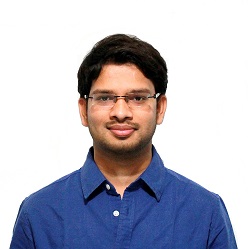
M.Eng. Vijay Puttappa Nagalingesh
Senior ADCS Engineer, Smart Small Satellite Systems GmbH
After his graduation in mechanical engineering from Visvesvaraya technological university in India, Vijay P N worked as a hydraulics design engineer for heavy earth moving equipment. As part of his master’s in space engineering at TU Berlin, he has developed a single axis satellite attitude test bed for educating future attitude control engineers. He has lead a student project that performed experiments onboard a sounding rocket mission through REXUS/BEXUS campaign.

Dr. rer. nat. Michael Schlüter
Founder and CEO of ASTRIONICS GmbH
Michael Schlüter holds a PhD in Physics from the University of Bayreuth. He has worked in the aerospace sector throughout his career, at the Max Planck Institute for Plasma Physics, Astrium EADS (now AIRBUS D&S) and MTU Aero Engines AG. Key topics involve the radiation tests of EEE (Electrical, Electronic and Electromechanical) & Opto parts and materials used in space programmes compliant with ESA and MIL requirements. In 2013 he founded ASTRIONICS GmbH.
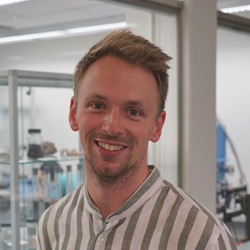
M.Sc. Simon Stapperfend
Research Assistant at Chair of Space Technology, TU Berlin
Simon graduated 2021 in Electrical Engineering with a specialisation in robotics at the TU Braunschweig and also completed an apprenticeship as an electronics technician for industrial engineering. During his studies and research in Braunschweig, Simon was an active member of the student aerospace association ERIG e.V., where he co-founded the rover group with which he won the remote edition of the European Rover Challenge 2020 and placed second in 2021. Throughout and after his studies, he worked as a research assistant at the Institute of Space Systems at TU Braunschweig until he moved to TU Berlin with Prof. Enrico Stoll, where he now supervises the rovers in addition to his research on 3D printing on the Moon.
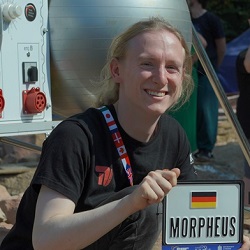
M.Sc. Maximilian von Unwerth
Research Assistant at Chair of Space Technology, TU Berlin
Maximilian von Unwerth holds a Master’s in Computer Science with a specialization in Robotics and Space Engineering. He currently leads the HOMER-ODISEE project at TU Berlin, focused on developing a robotic arm for space servicing and assembly. Previously, he worked as a research assistant at TU Braunschweig, teaching programming and leading labs, including the robotics and LEGO labs, and taught high school computer science for two years, mentoring pupils in the First LEGO League. As part of ERIG e.V., he developed a Mars rover prototype for the European Rover Challenge, now continuing as a supervisor at TU Berlin. His research includes work on the MIRA3D project for lunar additive manufacturing, and he has industry experience as a Development Engineer at NEUROSPACE, focusing on the CubeSat-based HiveR lunar rover project.
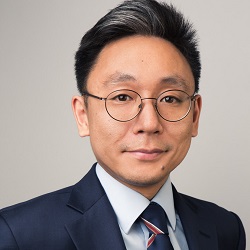
Dr.-Ing. Zizung Yoon
Professor for Satellites and Drone Systems, Korea Aerospace University
After graduating in Aerospace Engineering from TU Berlin, Zizung Yoon joined the development team of the small satellite TET at the Astro- und Feinwerktechnik Adlershof GmbH. He accomplished his Ph.D. in the field of fault tolerant attitude control systems. Currently, he is a Professor for Satellites and Drone Systems at the Korea Aerospace University.


